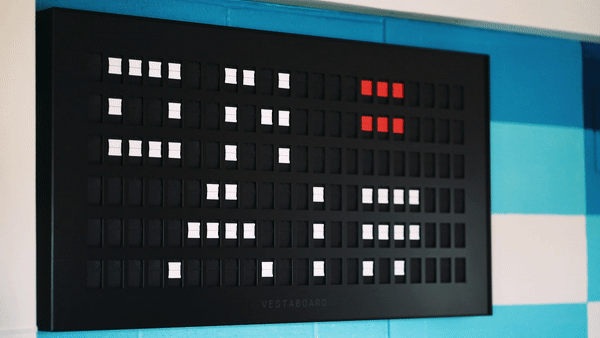Design Better Newsletter #6
Vanessa Gennarelli on why the tech industry needs help, Rick Rubin Synthesizer, upcoming AMAs
We’re a little late in putting together our January newsletter, but we hope you’ll forgive us (February 8th still counts as January, right?).
Like many of you, we had a lot of catching up to do after the holiday season, so we’ll keep this one short and to the point.
Here’s what we’ll cover:
Recent episodes & AMAs
Vanessa Gennarelli, author of Surviving Change at Work, on why the tech industry needs help in 2024
Rick Rubin Synthesizer
Job opportunities
Recent episodes and upcoming AMAs
In case you missed it (ICYMI as our kids say/text), earlier this month we aired a delightful interview with Scott Rice, Emmy-award winning director who teaches film at the University of Texas at Austin with Academy-award winning actor Matthew McConaughey…alright alright!
We chatted with Scott about how to get your creative process unstuck, how to find collaborators that amplify your skills and bring the right energy to a project, and the essential components for telling a compelling story, whether it’s a feature-length movie or short, convincing pitch.
We also just released an interview with Vanessa Gennarelli, author of Surviving Change at Work. We spoke with Vanessa about dealing with uncertainty, and how to decrease the odds that you’ll be laid off. We also discussed what happens when the mission of your organization has changed, and how to know when it’s time to go.
Vanessa also contributed an essay to this newsletter (see below), and Design Better listeners can get 10% off Vanessa’s book Surviving Change at Work by entering the code BETTER10 at checkout.
Josh Clark, founder of Big Medium, has been helping Fortune 500 companies design for what's next for years. Mobile and design systems have been staples, but things are changing now that generative AI finds its way into the software design workflow.
Josh will field your questions about how AI is changing the way creative teams operate, how software is built differently with AI co-pilots, and how design systems are implemented at large organizations.
Tickets are $15. DB+ subscribers attend free.
Become a DB+ subscriber for just $8.75/mo (58% savings) and get access to AMAs every month plus recordings from all our AMAs.
Vanessa Gennarelli, Author of 'Surviving Change at Work,' brings us an essay about what tech can learn from legacy enterprises.
In 2024, the Tech Industry Needs Help
And this one thing–that enterprises already know–could be just the solve
If you work in the tech sector, you already know it’s challenging times – over 260,000 layoffs last year, across over 1,100 companies. This bloodletting not only affects those whose roles evaporated, but also the employees who survive the reductions in force. And on the management side, leaders are anxious to focus on pressing problems like AI, interest rates, and demands for growth in a tough fundraising environment. Leaders need their team members focused, concentration which is tough to summon from a fearful workforce. It’s a quagmire where everyone is losing.
Inspiration…from the enterprise?
Innovation has always looked to other domains for lessons learned, wisdom, and inspiration – biomimicry, prostheses developed from makeup artists, even Velcro all come from “cross-pollination” of ideas from other disciplines. For the tech industry to bounce back, we need the best practices that enterprises have long known: we need to learn how to adapt to change gracefully. We need change management.
The traditional concept of "change management" might seem like a luxury reserved for large enterprises. It’s a billion-dollar industry, and these big-ticket engagements can range from $500,000 to over a million dollars, taking months or longer.
As someone who has experienced these rapid changes firsthand many times (along with their resulting fallout), tech companies need the best practices of change management in order to get alignment between the rank-and-file and leadership. But as a sector that values speed, it needs to be lightweight and easily deployed.
A new framework
So, what does change management for the tech industry need to look like? It can't be the traditional model of change management consulting. It has to be agile, adaptable, and tailored to the fast-moving nature of tech organizations.
Tech leaders can take a cue from many successful patterns and frameworks that have emerged over the years to bring this to life:
The Lean Startup framework provided a clear and lightweight path to product development, revolutionizing how startups approach innovation.
Similarly, metrics like the DORA and SPACE frameworks offered a structured way to measure developer productivity and team performance.
Today, firms like NOBL are developing change management frameworks specifically designed for fast-moving tech teams.
These frameworks offer a structured approach to managing change while allowing for flexibility and speed. They can serve as a valuable tool for tech leaders and managers looking to navigate the turbulent waters of constant transformation.
What’s at stake: the economic impact
The tech sector is a significant contributor to the U.S. economy, employing approximately 7 million people, with an estimated 2 million in startups alone. These startups represent a substantial portion of the labor market, making their success crucial. However, when change goes awry, it can have disastrous consequences.
One example of mishandled change is M&A. These acquisitions come with their own set of change management challenges, from aligning culture and values to redefining workflows and product strategies. A glaring object lesson is Meetup, once a cornerstone of tech communities, which went from being acquired by WeWork for $156 million to being resold to Alleycorp for a fraction of the price.
Additionally, mishandled change management can lead to a decline in goodwill on balance sheets. Teledoc's turbulent acquisition of Livongo for $18.5 billion in 2020 resulted in a $6.6 billion impairment charge in Q1 2022, causing their stock to plummet by 45%. These examples highlight the profound impact that poor change management can have on a tech company's financial health.
Grace and speed
As an industry, we know how to move fast – Instagram acquired 27 million users and sold for over $1 billion in the space of two years. Even ChatGPT, for all of its benefits and externalities, grew from a bright vision to a culture-changing force with 250 people.
We’ve always been great at speed, but now we need to build the muscle to adapt gracefully. Using a lightweight toolset will smooth disruptions, reduce value leakage, and ensure the continued growth and success of the industry.
If you’re leading a team or a company, build capacity in your managers to adapt gracefully, and you’ll see greater success through an ever-turbulent environment.
Rick Rubin Synthesizer
We’ve been enjoying playing around with all kinds of generative AI tools, and recently Eli had an idea:
What if you could have Rick Rubin by your side, to give you encouragement and advice when you're struggling with a creative project?
This thought came to mind while he was listening to his podcast Tetragrammaton, where he was having a conversation with Jimmy Iovine. So he used ChatGPT to help code up a little Rick Rubin Synthesizer 🎹 , with samples from his show.
Feel free to expand, remix, redesign, etc: https://codepen.io/ewoolery/pen/zYbWxMR
(note that it currently only works on desktop, and there is sometimes a little delay in playing the samples).
Job Opportunities
Here are a few recent opportunities we’ve run across while scrolling LinkedIn:
Mehul Shah is hiring a Sr. User Experience Designer at Tesla.
Christin Zoltok is hiring a Sr. Staff Product Designer at Shopify.
Joel Fisher is hiring for multiple design and marketing roles at Accenture Federal Services
Newsletter Sponsors: Vestaboard & Brain.fm
A big thank you to two of our sponsors for this newsletter, Vestaboard and Brain.fm.
Vestaboard
If you missed it, in December we aired a bonus episode with Dorrian Porter, CEO of Vestaboard. We’re loving how our Vestaboard creates a space for sharing inspiring quotes or creative imagery that causes us to look up and reflect.
We’ve been using the Vestabord during our AMAs, and it’s been getting love from our attendees:
Design Better listeners can get $200 off one of these magical displays from Vestaboard. Visit Vestaboard.com and use the code “DESIGNBETTER” at checkout to save $200.
Brain.fm
We’ve sung the praises of Brian.fm, and how it helps us focus and rest. Our fans love it too. Friend of the show Adam Fry-Pierce says:
"Hey Aarron & Eli-
Just wanted to send a note to thank you so much for sharing Brain.FM on DesignBetter. I happened to listen to the OKGO episode and the moment of Zen at the end of the episode gave me rocket fuel for the rest of my day. I listened over and over again when I first heard it weeks back, and continue to today.
Brain.FM didn't stop with me.
I told my wife about it, who leads teams at SiriusXM, and she too has the bug. Our favorite track currently is Dreamlight. Much much appreciation for sharing this - I never knew about Brain.fm and I'm so happy we've discovered it."
Get 30% off an annual subscription to Brain.fm with this link.








